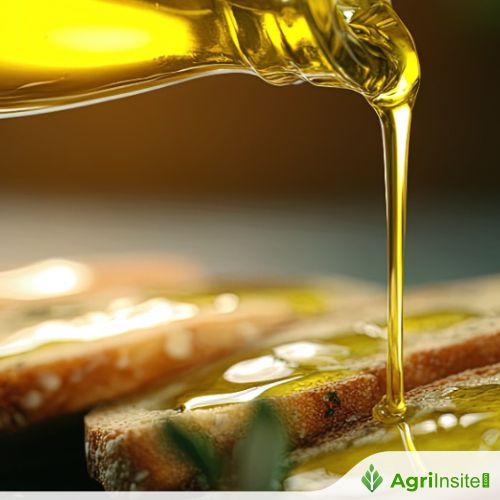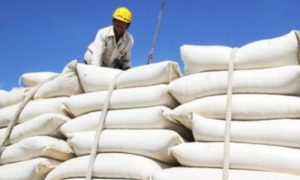Bangladesh : Dates, edible oil set for import tax cuts ahead of Ramadan

The National Board of Revenue (NBR) in Bangladesh plans to reduce import taxes on dates and edible oil ahead of Ramadan to stabilize prices. Dates’ import tax could drop from 64% to 39%, and VAT on edible oil could fall from 15% to 5%. However, traders warn that delays in implementing these cuts could increase prices, especially since letters of credit for date imports have already been opened. Despite tax reductions, essential goods like rice, oil, and dates have seen price increases, partly due to market manipulation by large businesses.
The National Board of Revenue (NBR) is planning to lower import taxes on dates and edible oil to keep prices stable during Ramadan – the month of fasting, according to officials.
The revenue authority also aims to implement measures which will ensure more accurate tax assessments on some products.
A senior NBR official, on the condition of anonymity, told TBS that currently, dates, a highly sought-after item during Ramadan, are subject to an import tax of about 64%, which includes customs duty, advance tax, advance income tax, and value-added tax. This rate may be reduced to 39%.
In addition, the VAT on edible oil at the import stage may be slashed from the current 15% to 5%, he added. Previously the NBR withdrew all VAT on local-stage refining and sales of edible oil.
Another NBR official said, “We are currently working on the tax cuts for these items and a Statutory Regulatory Order (SRO) in this regard will be issued soon.”
“Businesses and Bangladesh Trade and Tariff Commission have requested a reduction in import taxes on some products. With Ramadan approaching, we hope the measures will help stabilise prices and provide relief to consumers,” he said.
While fruit importers appreciated the move, they said that the import tax on dates should have been reduced earlier, as many traders had already opened letters of credit.
Monsur Alam, the owner of Monsur Cold Storage and a prominent fruit importer, said the process of opening letters of credit (LCs) for date imports began in September, warning that “any delays in issuing the tax reduction order could lead to higher prices.”
Importers also urged authorities concerned to evaluate valuations for imports based on invoice prices or actual market rates.
“Customs officials are currently assessing imported dates at nearly twice their actual value, significantly increasing costs,” Monsur Alam told TBS.
On 14 November, the Bangladesh Trade and Tariff Commission (BTTC) proposed reducing import taxes on dates to ensure affordable prices during Ramadan. The proposal was submitted to the Ministry of Finance, the Ministry of Commerce, and the NBR.
According to BTTC, the existing customs valuation for imported dates, set by executive order at customs stations, is flawed. It suggests that customs valuation should follow proper procedures based on the actual exchange value.
Bangladesh’s annual demand for dates is estimated to be between 1 lakh and 1.10 lakh tonnes, with 50,000 to 60,000 tonnes consumed during Ramadan alone, according to BTTC.
Despite import tax cuts, prices of essentials remain high
Although the NBR significantly reduced import taxes on several essential products, including rice, sugar, eggs, potatoes, and onions, as well as cut local stage VAT for edible oils over the past two months, prices of many of these goods have remained high.
NBR officials told TBS that the total value of the tax cuts exceeds Tk8,000 crore.
However, the latest data from the Trading Corporation of Bangladesh (TCB) shows that, in the month leading up to Monday, coarse rice prices increased by 7%, soybean and palm oil by around 12%, imported onions by 5%, and dates by 7%.
Only sugar prices dropped slightly, and egg prices saw a decline of about 7%, TCB data shows.
SM Nazer Hossain, vice president of the Consumer Association of Bangladesh, attributed the high prices to the manipulation by large traders and corporate entities.
“Large businesses are manipulating the market and the lack of government oversight allows this to continue. That is why despite tax reductions, prices are not coming down,” he said.
Nazer criticised some corporations for blaming global price hikes, saying, “The prices of most consumer goods in the international market have not increased.”
Md Farid Uddin, a former NBR member for VAT and Customs policy, pointed out that while tax reductions should lower retail prices, they aren’t being passed on to consumers. “If there is no adequate supply, someone in the supply chain will exploit the situation,” he said.
Mohammad Alim Akhter Khan, director general of the Directorate of National Consumers’ Rights Protection, said allies of the previous government are still active in the market, continuing their influence. “When there is a supply-demand gap, these manipulators exploit the opportunity,” he added.
To read more about Edible Oil News continue reading Agriinsite.com
Source Link : The Business Standard















